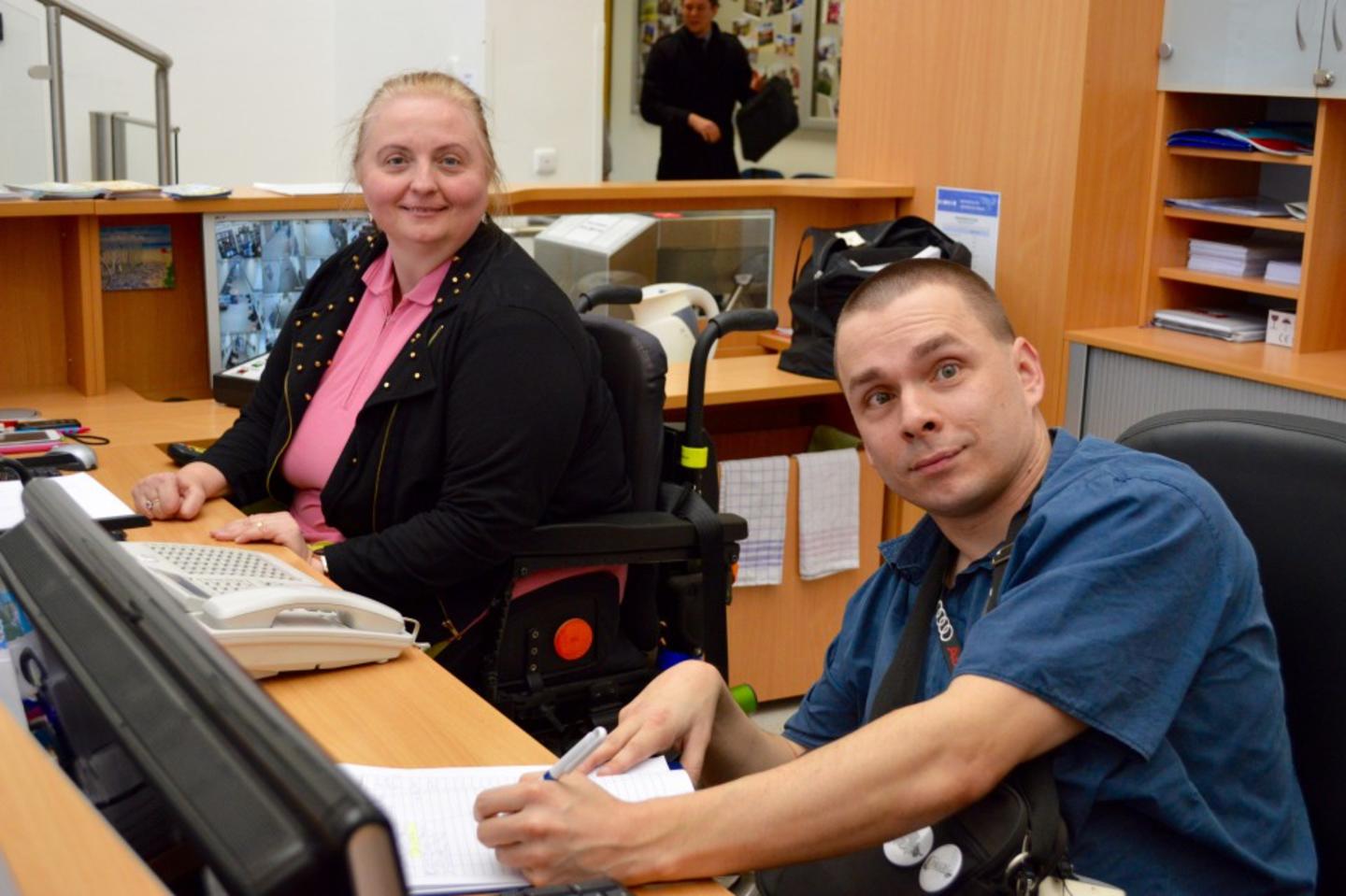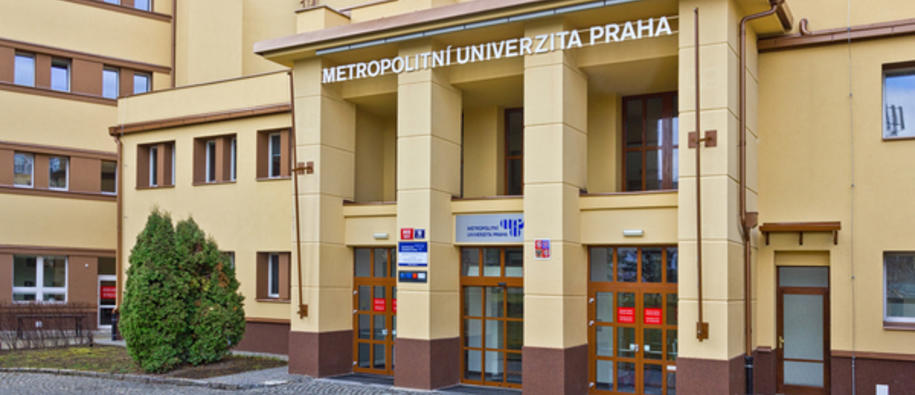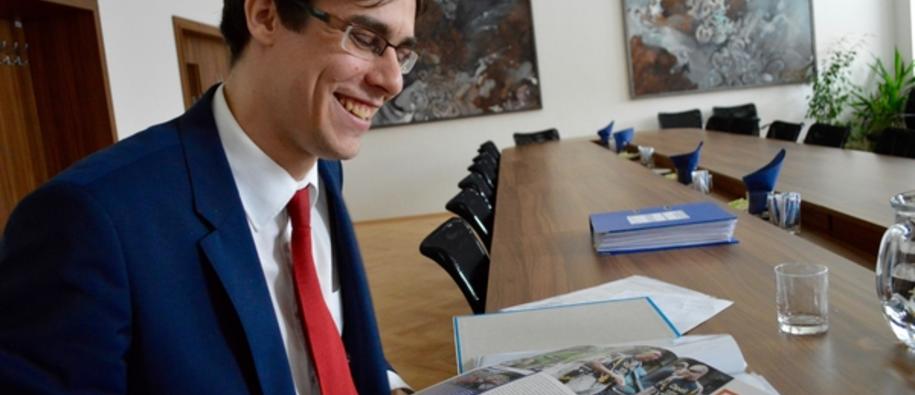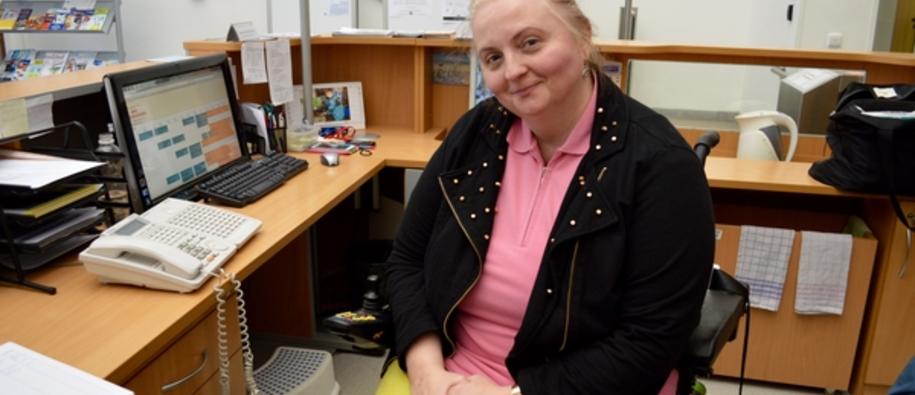“Welcome! Everybody’s welcome here,” says George Nemecek (38). He maneuvers his wheelchair easily around the reception area, while offering his assistance. George works in a classic stone building with a broad, modern ramp at the entrance. The Metropolitan University is set up to cater for all students.
Hidden away, shamed and discriminated against. Physically disabled people in the Czech Republic were neglected under communism, excluded from both society and the working life. Today, Czech society is moving slowly in the right direction, with the help from the university in Prague.
School without barriers
“We are a school without barriers. 40 years of communism put a brake on development in the Czech Republic and suppressed the role physically disabled people played in society. We are the first university in the country to have studies specifically for physically disabled students,” says Lubos Janak, project leader for `Physically disabled people in the workplace´, a project supported by EEA and Norway Grants.
George has always dreamt of being able to study.
“I thought it was impossible because I have difficulty reading and writing, and I use a wheelchair. But Metropolitan has adapted everything,” says George.
Through the funded project, University of Prague has arranged workshops and conferences in collaboration with Norway’s University of Science and Technology (NTNU). Both universities have extensive experience with the inclusion of disabled students, at campus and in the labour market.
Targeting employers
“NTNU has inspired us. They have similar experiences of encouraging employers to recruit disabled employees, and we’ve had good academic discussions about which approaches work best,” says Lubos.
“Our point is that nobody benefits if a large group of qualified employees is left outside the labor market. By highlighting the problem and contacting Czech employers directly, we see the market opening up more and more,” says Lubos.
Today, 80 physically disabled students receive free education from the Metropolitan University. It is one of the few universities in the Czech Republic that is universally accessible.
At the Norwegian university, NTNU, project partner Reidar Angell Hansen has contributed to a study on disabled students and their transition to work.
"Through the survey, we found that 50% of the students were concerned about finding a job. 20% of the students assumed they would only get a part time job after finishing their exams," says Reidar Angell Hansen, Senior Adviser at the Student Services Division at NTNU.
First student on wheels
Petra Fiederova (49) was the Metropolitan University’s first disabled student. She led the way for many, but her journey hasn’t been easy.
“I suffered meningitis as a child and ended up in a wheelchair, which has created many challenges. In the Czech Republic, there are physical barriers everywhere; on the bus, on the metro, and in the shops. Very few buildings and workplaces have lifts or ramps,” says Petra.
After completing her Masters in Economics at the Metropolitan University, she has been working as a receptionist and coordinator for seven years.
30 minutes to read a page
Petra has been an inspiration for many people; for George Nemecek she was a crucial role model.
“Petra inspired me, she encouraged me to study although I didn't believe it would be possible. Today I have a Master in International Relations, and I’ve completed an exchange program,” he says.
George has cerebral palsy and suffers from reaction and coordination problems. It takes him 30 minutes to read a page, and it’s impossible for him to write by hand.
“They have to understand the potential”
Even with good marks and a Masters degree, disabled students have difficulty finding work.
“Getting employers on board is the key to integration. We’ve invited people to courses and conferences where we talk about the challenges and potential involved in employing our students; often all that’s needed is another ramp,” says Lubos.
Interested in the Czech Republic? Here are a few other stories:



